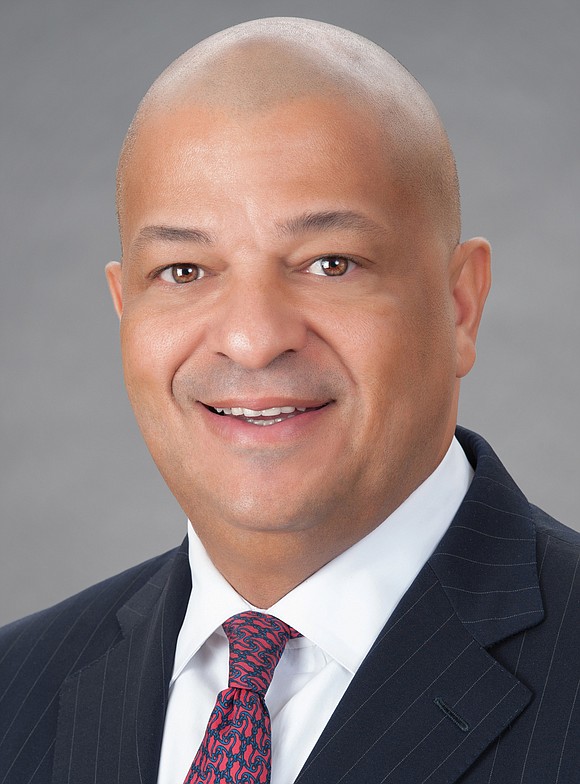Gold rush
Urban One wins nod to operate a casino-resort in South Richmond with a contract based on high expectations and promises of payouts
Jeremy M. Lazarus | 5/27/2021, 6 p.m.
As the Virginia General Assembly considered legislation in winter 2020 to authorize casino gambling in Richmond and four other cities, Alfred C. Liggins III spent time buttonholing House and Senate members.
In a campaign that ultimately was successful, the chief executive officer of Black media juggernaut Urban One encouraged legislators to pass a bill allowing the state’s capital city to hold a competition to determine its preferred casino operator and a potential gusher of new revenue, jobs and visitor growth.
Fast forward 14 months and Mr. Liggins and his company that has never operated a casino are celebrating victory after outdistancing five competitors, including seasoned casino operators such as Bally’s, Golden Nugget and The Cordish Cos.
“We’re thrilled Richmond has chosen the best project with the best location and best team to develop a world-class entertainment destination in Richmond’s South Side,” Mr. Liggins stated after the city casino evaluation panel’s May 20 recommendation that ONE Casino + Resort move forward as the city’s preferred casino gaming operator.
Mr. Liggins’ company also is proffering a $25.5 million up-front payment to the city once the project passes muster with City Council, casino regulators at the Virginia Lottery and city voters.
The project is to be built on 100 acres at 2001 Walmsley Blvd. near the Bells Road interchange with Interstate 95 and include a 90,000-square-foot casino, a 12-story, 250-room hotel, a concert venue, convention space and a 50-acre park.
The $562 million project that could open as soon as December 2023 will belong to an entity created for that purpose, RVA Entertainment Holdings LLC, which the city says will be investing at least $146 million and borrowing the rest.
RVA Entertainment Holdings is comprised of a politically connected corps of about 50 mostly well-heeled Black and minority investors largely from the Richmond area whom Mr. Liggins attracted and who were another factor in the selection. At the entity’s head is Mr. Liggins and his mother, Cathy Hughes, founder of the Maryland-based Urban One media empire and chairperson of its board.
While Black men have headed casino opera- tions for other companies, RVA Entertainment Holdings would be the first majority-Black entity to own a casino, according to Mr. Liggins, a point he emphasized during his campaign for city support.
However, the casino’s operation will be handled by Peninsula Pacific Entertainment, a veteran in the gaming industry that owns and operates Colonial Downs horse racing in New Kent County and the satellite Rosie’s Gaming Emporium slot machine venues in Richmond and several other Virginia locations.
Happy to be among the five Virginia cities the legislature allowed to host gambling, Richmond’s City Hall foresees major benefits from hosting a casino that Urban One projects will attract 3 million or more visitors a year to the city’s South Side, mostly from outside Richmond.
City Councilwoman Reva Trammell, in whose 8th District the planned casino would be built, calls it the biggest investment ever in the district.
As outlined Monday night in a presentation to City Council, city Development Director Leonard Sledge sought to outline the benefits, including the upfront payment.
He said the city conservatively estimates the casino would generate $171 million in new revenue for the general fund in the first five years, primarily from city and state taxes on an estimated $300 million in annual gaming revenue and the $25.5 million in upfront money.
That is far more than the $408,000 a year in city tax revenue the property currently generates, Mr. Sledge noted.
Other estimates suggest that regular city taxes — ranging from assessments on real estate to collections from admissions and lodging — could yield an additional $7 million to $10 million each year after the casino resort opens.
Aside from the revenue flowing into city coffers, the casino has agreed to create nearly 1,000 new full-time jobs, plus more than about 350 part-time jobs, though far fewer than the 1,750 jobs ONE Casino touted on its website.
All employees would earn at least $15 an hour, including workers who rely on tips, with full-time workers having health benefits and a share of the profits, Mr. Liggins has said.
Under the agreement, city residents also would be preferred hires during the construction, and the city also has set a goal of having Black- and minority-owned businesses play a big role in building the casino resort, in providing supplies and services and in operating a major share of the 15 restaurants that are to be on-site, including four sit-down restaurants.
Along with a new park that would occupy about half the property, the project is to include a 3,000-seat events center for 200 yearly concerts featuring mostly national acts that another partner, Live Nation, is to promote. The company also plans to purchase as much as $500,000 in local and regional artwork in decorating the casino resort and provide space for rotating art shows.
Other benefits include a 10-year agreement with RVA Entertainment Holdings to provide the city with $2.5 million a year worth of advertising and promotion over Urban One’s 55 radio stations and its cable channel, digital outlets and other operations.
A separate 10-year agreement would require the company to spend $5 million a year producing TV, movie and other content at the casino resort, a potential boon to Richmond’s fledgling film and content production industry.
RVA Entertainment Holdings also is to provide $1.6 million a year in donations to charities and educational institutions, along with a $35,000 donation annually to the Richmond Public Schools foundation. The company also is to provide $325,000 a year in subsidies for employee transportation.
Mr. Sledge said the company will bear the full cost of the project, with the city agreeing to share only in the cost of new landscaping to beautify the streetscape leading to the casino resort’s entry. The company also must pay for any improvements to Walmsley Boulevard that a traffic study identifies, according to the agreement.
The selected South Side site used to be home of the Philip Morris tobacco operations center that was closed and put on the market 12 years ago by Philip Morris’ parent company, Altria.
Urban One had been anticipated to win the panel’s recommendation, having already wrapped up support from a majority of City Council. The bid had attracted cheers and support from South Side civic groups, unlike runner-up Cordish, which faced mounting opposition to its plan to replace a North Side movie multiplex with its proposed gaming mecca and concern over the company ties to former President Trump’s family.
Mayor Levar M. Stoney told City Council on Monday that the city benefitted from taking its time to hold a competition, engage the public and listen as it evaluated the bids.
“After considerable vetting and negotiating, I am convinced we have secured an operator, a location and an agreement that is the strongest,” Mayor Stoney said.
Mr. Liggins is eager to get started. He faces a Dec. 31, 2023, deadline to open, with the city inserting penalties into the agreement if the work is unfinished.
Mr. Liggins told the Free Press he has rejected the idea of putting a temporary casino on the site while construction is underway. His hope is that crews can begin the site work in January while the city reviews the plan of development. In the agreement, the city indicated that it could be April before all the approvals and permits are issued to allow construction to begin.
However, the project still has several next steps. Assuming City Council rubber stamps the mayor’s resolution at its Monday, June 14, meeting as anticipated, the paperwork then must go to the Virginia Lottery, which has 45 days to conduct a preliminary review.
If the lottery gives thumbs up, then the casino proposal would go to the Richmond Circuit Court for an order to put the issue on the Nov. 2 ballot. The state law requires that voters make the final decision on whether they support the casino and its location.
Similar referenda in the four other cities passed by landslide margins last November. Already yellow signs of opposition to a casino have popped up on lawns, and social media comments indicate that opponents are arguing that a casino will create more poverty, fewer good jobs and more social problems than benefits.
One potential stumbling block has been removed. Dennis Cotto, a Northern Virginia attorney and businessman who was part of the unsuccessful bid by Golden Nugget, backed away from filing a lawsuit that would tie up the project in court. He said he dropped the idea because the outcome was unlikely to change.
Mr. Liggins is on board with ensuring significant Black and minority participation in the development and operation of the casino resort. At a presentation Tuesday, it was announced that Kenneth S. Johnson, an ally of Mayor Stoney who has a public relations and marketing firm and is one of the casino’s investors, would oversee RVA Entertainment Holdings’ minority business efforts.
Mr. Liggins previously listed Black contractor Devon Henry and his company, Team Henry, which took down the city’s Confederate statues last year, as a primary partner with Hourigan Construction Co. in building the casino.
Urban One’s CEO also has committed to meeting, if not exceeding the city’s goal of having 40 percent of the construction, potentially $225 million in work, handled by construction companies owned by people of color. The company also has agreed to have union wage scales apply and to meet another city goal of having 40 percent of the work performed by skilled and unskilled union members.
Based on the written agreement, the company also has pledged the general contractor team and the subcontractors would give preference to first hiring city residents to fill construction jobs, particularly laborer jobs.
Whether Richmond actually got the best deal is uncertain. In late March, Mr. Liggins told the Free Press that his group would pay the city $60 million up front if it were selected. Bally’s offered the city $100 million up front. In the end, the city accepted $25 million, plus a bigger slice of gaming revenue, 3 percent, on top of the money it will derive from the state tax.
The $1.6 million community benefit fund that Urban One will provide also is far smaller than the $13.5 million The Cordish Cos. planned to donate yearly to charities and educational operations if it were selected.
Other bidders also proposed bigger hotels with more rooms than the winning bid, which beefed up its offering in the final weeks by increasing the number of hotel rooms from 150 to 250 and expanding the size of its casino.
As Mayor Stoney sees it, ONE Casino + Resort checked off more than enough boxes and will be a positive for the city in generating “funding for schools, affordable housing, infrastructure improvements and services” that have long been underfunded.









